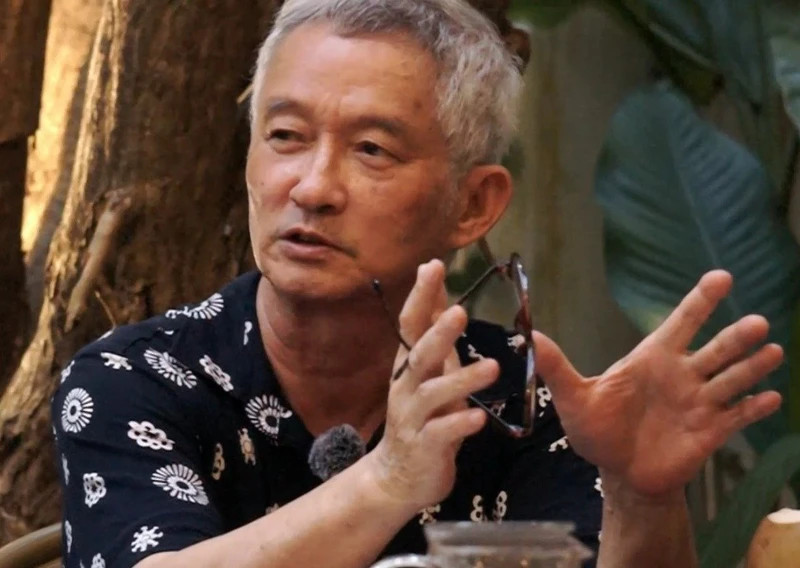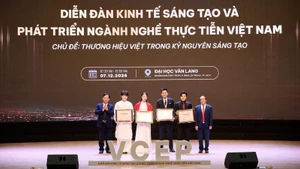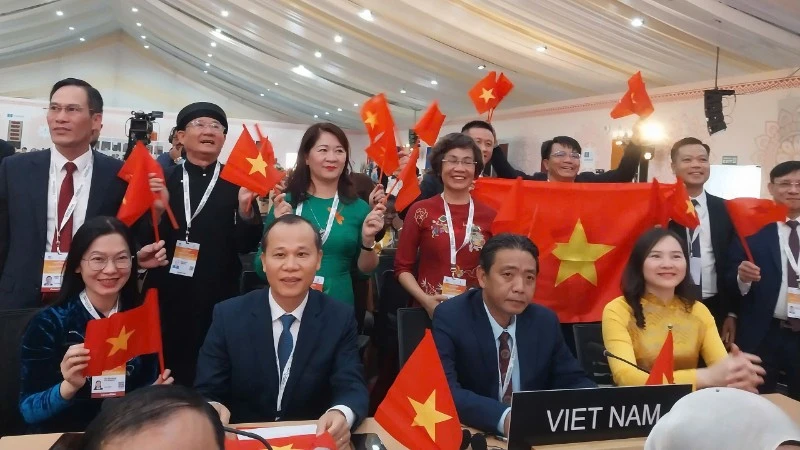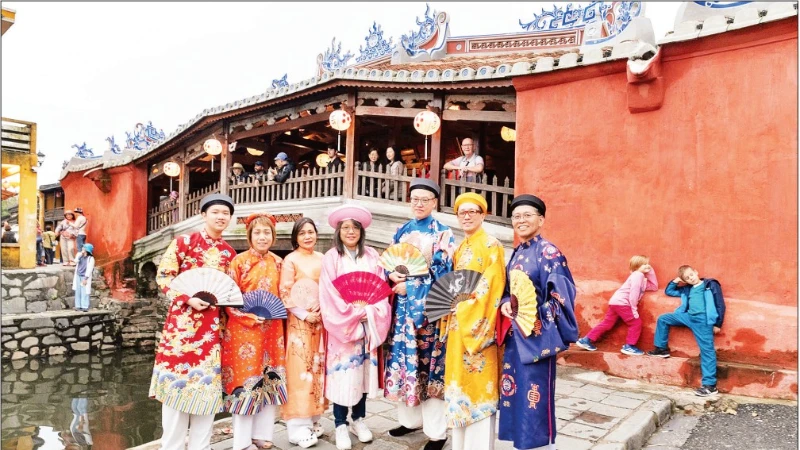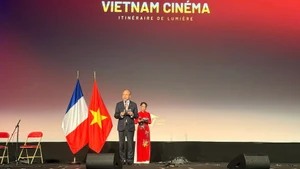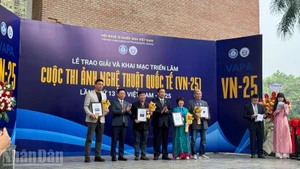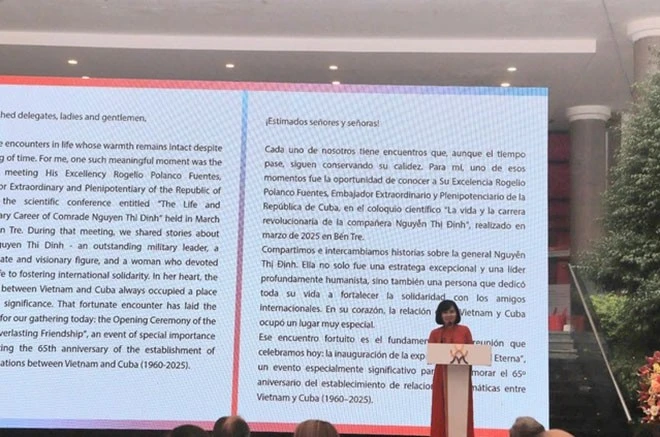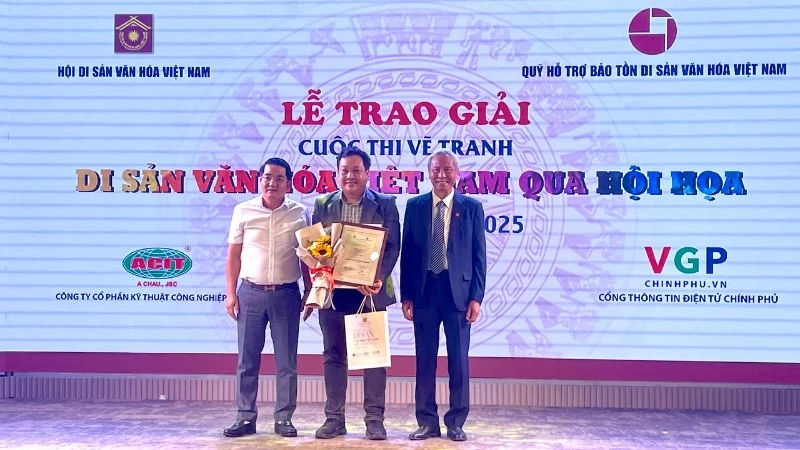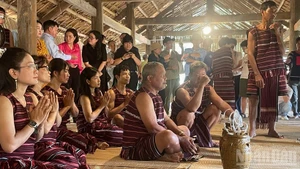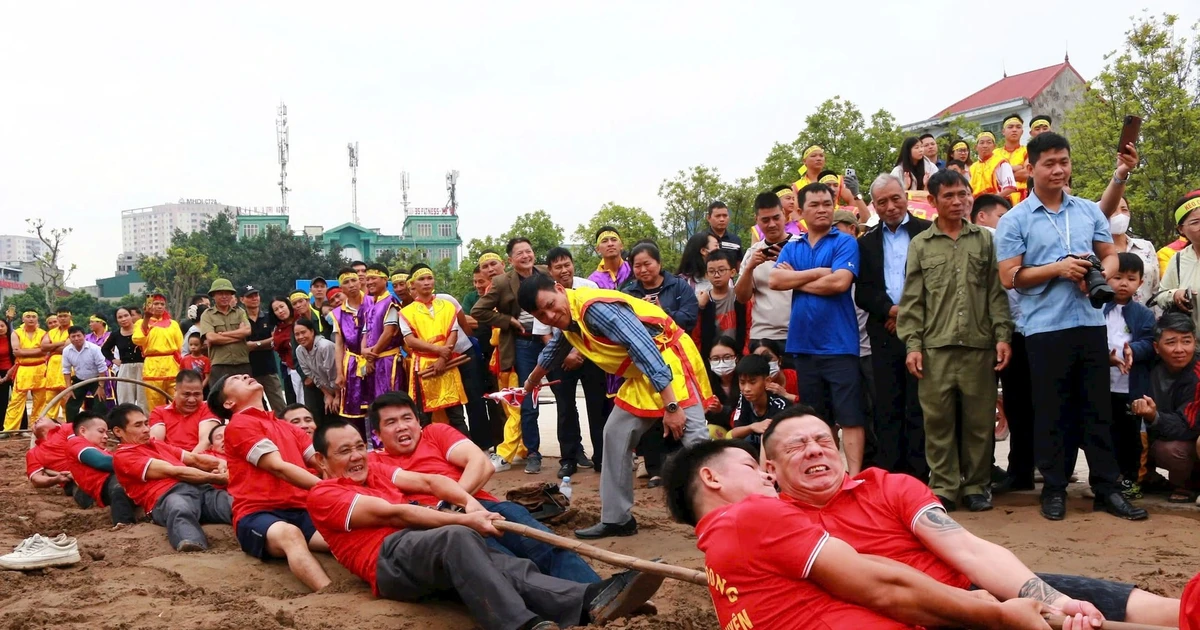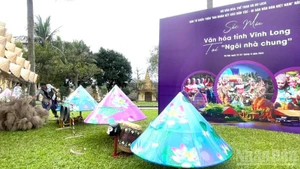Fortunately, young people have enthusiastically introduced and promoted the film " Dao, Pho và Piano" through social media. Like a tidal wave, the buzz has surged. This is a real force that even filmmakers like him still do not fully comprehend…
From “Dao, Pho and Piano”…
Q: In a recent press interview, you mentioned that history and historical films must jump into smartphones. Could you elaborate on this statement?
A: In the past, learning about history or acquiring new knowledge involved traditional methods like visiting libraries and bookstores and listening to elders and friends. Today, with new technologies, young people have much better access. Within seconds, they can find the information they need. One of the hardest things to find is history, but smartphones have greatly facilitated this. Naturally, young people are more adept at using these tools than older generations. This is a part of the modern age's civilisation.
Q: Perhaps the success of "Dao, Pho and Piano" has caused you to reconsider your own filmmaking approach?
A: Many people say that film is an art form aimed at young audiences. In reality, audiences of all ages need cinema, but younger people need to watch films more frequently. Cinema is one of the most accessible sources of information and has the greatest impact on people. It presents situations, and characters' destinies, and employs specific artistic techniques to connect with the audience.
Q: Youmentioned the promotion with a very successful example of “Dao, Pho and Piano", a historical film commissioned by the state. We are not discussing commercial films here, as they have their own methods, resources, and experience. " Dao, Pho and Piano" was promoted very successfully, but in our opinion, no matter how effective the promotion is, if the artistic quality of a film is not engaging or attractive, the audience will still turn away. Thus, is the quality of a film a decisive factor?
A: An artistic, first and foremost, must have entertainment value. This applies to cinema as well, regardless of the genre, it must have entertainment features and use entertainment value, but entertainment is not the ultimate goal. In our country, filmmakers working on state-commissioned films face certain disadvantages, as their films have not been well-promoted, and they have often lacked an understanding of entertainment value. Additionally, there is a lack of interaction with the audience when making these films. A significant issue is that there are two types of communications including through media channels and word of mouth. The latter is also very "noteworthy" and effective. My colleagues and I, who work on state films (propaganda and historical films), need both types of promotion.
Q: Back to "Dao, Pho and Piano", what message did you want to convey to the public through this film? Do you feel the message you intended to deliver has been truly successful?
A: In fact, I have not had a deep-seated desire to convey a grand message or significant statement to the audience. That is not the essence of art. The essence of art lies in storytelling, in creating emotional resonance, and in connecting from heart to heart. From this perspective, our film is about courageous people and ordinary citizens who rose up against invaders when their homeland, homes, and streets were trampled, their desire for freedom was extinguished and their values were destroyed. That is patriotism! Having experienced the war, served in the military, and witnessed many sacrifices and bloodshed, I have seen the remnants of war in the streets of Hanoi, from the French colonial era to the American imperialist period. These experiences motivated me as a filmmaker to express something significant. Simply put, it's like "when the enemy comes, even women fight", more profoundly, it’s about the desire for freedom. When human freedom is trampled upon, even the most ordinary people take heroic actions.Top of Form
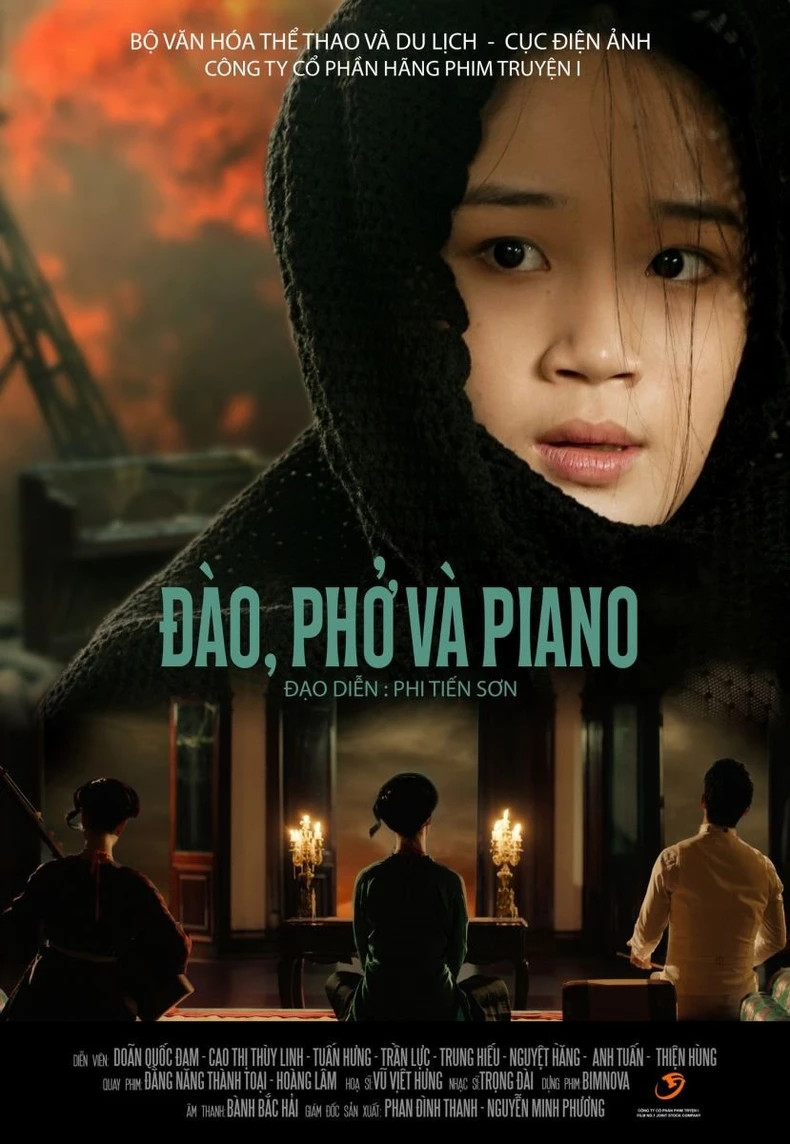 |
| Poster of the film “Dao, Pho and Piano”… |
… to the questions of history that need to be uncovered.
Q: If you were to summarise the creative work involved in making historical films, how would you describe it?Bottom of Form
A: Many people believe that making historical films is like using history as a coat rack for filmmakers to hang their ideas on. This comparison might be a bit old-fashioned but it’s accurate. History, as we understand it, is only a part of the story. The records left by previous generations about past events and figures are not complete and may not be entirely accurate. So, should we hang a coat on an uncertain rack? When dealing with historical issues, we need to calmly reflect on them, consider them, and find the most accurate and meaningful answers to construct our works.
Q: We have the coat racks and the coats, but how we hang those coats on the rack reflects the filmmaker's talent, doesn’t it?
A: In my opinion, it reflects not only talent but also life experience and a bit of luck!
Q: Losing the nation means losing everything. Losing the country means losing the place where countless generations have lived, created, and built. We fight to protect and reclaim our nation, homeland, and ourselves. In such circumstances, historical fate, national fate, and individual fate are intertwined, aren’t they? Is this what has driven you to pursue historical and resistance films?
A: There are simple and easily understandable sayings that are deeply profound, such as mountains are the bones of the land; rivers are the blood of the land; the land is where we survive. I believe these are wonderful concepts about the nation. On a broader and deeper view, the mountain ranges and rivers on the land where we live are like our bones and blood. This helps us appreciate how important and sacred our homeland and nation are to each of us…
Q: Through your heartfelt words about the concepts of Fatherland, nation, and civic duty, it seems that you approach making historical films as a mission. Do you adhere strictly to the accuracy of official historical records when making historical films, or do you prefer to take inspiration from history to tell the story you want to tell?
A: There are concepts of official history, non-official history, and even speculative history. Historical facts are often complex and require discussion, but the most important thing is to honour our forebears. That is the core issue when choosing historical subjects for creation. History can be recorded differently at different times and reassessed with new discoveries. While we reference one source of information as accurate, another source may present a different result, and our understanding of history can evolve. History, like truth, is a multidimensional process. Therefore, making historical films involves using historical material appropriately; it is a process of interpreting and expressing one's own desires while seamlessly blending with the creative inspiration of the artists.
Q: Honouring history is the responsibility of future generations. Do you agree that we talk about making historical films to enable contemporary people to reflect on the past, learn valuable lessons from their ancestors, and apply those lessons to live and act better?
Q: History offers us many lessons. The most important lesson is about human integrity. I believe that moral and human stories stem from tradition and history. Imagine if one day our descendants lost all "memories" of the past, how empty life would be. From today's societal standards, history provides many values. While some aspects of history may seem outdated or backward, its lessons are always relevant. The key is how you understand and apply them. For example, in the past, a village chief managed the village according to the orders of the higher authorities, but he also had to consider his own reputation, family, and clan. He needed to act in a way that preserved his honour while fulfilling his duties. Unfortunately, today many people in positions of power do not learn from this historical lesson; due to greed, they become corrupt, forgetting their honour and falling into legal and disciplinary troubles. If historical lessons are represented and promoted through literature, arts, and cinema, highlighting the noble values of our ancestors, they might still benefit society.
Q: People in our era can also be seen as those who are continuing history. Watching your films, it is clear that you accompany, share, empathise with, and live within the world of your characters. Could you elaborate on the human condition, especially the Vietnamese people, as conveyed through the stories and characters you portrayed?
A: The Vietnamese people possess core and enduring values. These include the dual aspects of good and evil, virtue and vice. From a national perspective, we recognise the dignity of the Vietnamese people. When evaluating the Vietnamese in the context of human development, we are an inseparable part of humanity. Therefore, we must understand universal human values and avoid insisting that our own values are superior or excessively self-glorifying. We need to approach this with fairness, objectivity, and a proper evaluation of the value system of the Vietnamese people.
Q: -For my final question, what are your future plans and aspirations for your filmmaking career?
A: Returning to historical issues, there are historical questions that need to be addressed. There are beautiful and significant historical stories that should be revisited by the public. Some historical issues have persisted for a long time and now they are not just historical issues but contemporary and global challenges. Addressing these issues is important and necessary, but it also poses significant challenges. I am exploring new territories and meeting many people to gain further understanding and clarity on what I need to explore and nurture for creative inspiration, which is extremely important for an artist.
Thank you very much!
